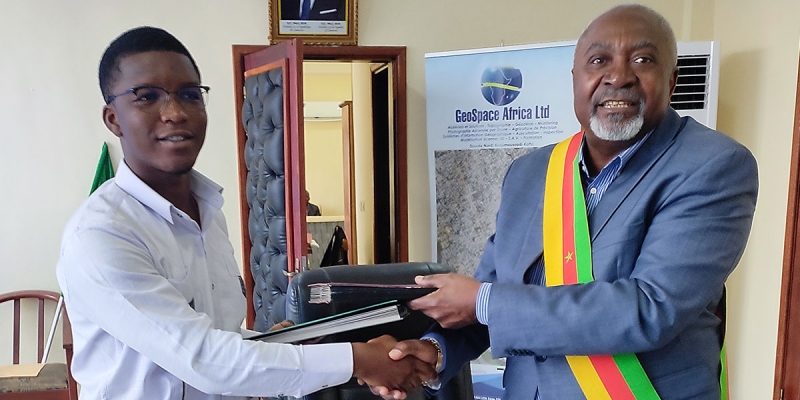As part of the EMPOWERWASH-AFRICA program, the African Water and Sanitation Association (AfWASA) recently conducted an exploratory mission in Cameroon, specifically in the municipalities of Dschang, Fokoué, Bamendjou and Douala 5. The purpose of this mission was to meet the authorities of these municipalities selected for the implementation of the project, to present the Association and the project, to sign a partnership agreement (MoU) for the successful execution of the project, and finally to encourage these municipalities to become members of AfWASA.
After more than 40 years of involvement in the water and sanitation sector, AfWASA has recognized the need to broaden its scope to include rural areas, in line with Sustainable Development Goal number 6. With the support of the Conrad N. Hilton Foundation (CNHF), the association is implementing the EMPOWERWASH-AFRICA program to meet this imperative.
According to the Program Coordinator Hemez Kouassi, the mission was a success. The municipal authorities met expressed their support and commitment to the EMPOWERWASH-AFRICA program, and partnership agreements were signed as planned with Mr. Jacquis Gabriel KEMLEU TCHABGOU (Mayor of Dschang), Mrs. Adrienne Paule DEMENOU TAPAMO née ZAMDJIO (Mayor of Fokoué), Mr. Xavier TAKAM (Mayor of Bamendjou), and Richard MFEUNGWANG (Mayor of Douala 5). In addition, a training session on the KoboCollect tool was organized, arousing keen interest among participants.
The mission was a resounding success, meeting all its objectives and demonstrating the commitment of Cameroon's municipal authorities to the EMPOWERWASH-AFRICA program. It marks the beginning of a promising partnership to improve access to drinking water and sanitation in rural areas.
Finally, it should be noted that the overall aim of the EMPOWERWASH-AFRICA program is to enable AfWASA to better understand Water, Sanitation and Hygiene (WASH) systems at rural district level, in order to identify best practices, gaps and challenges to improve service delivery performance. The program targets 30 municipalities or rural districts in 6 countries: Burkina Faso, Cameroon, Ethiopia, Ghana, Malawi and Uganda.

 English
English  Français
Français 
